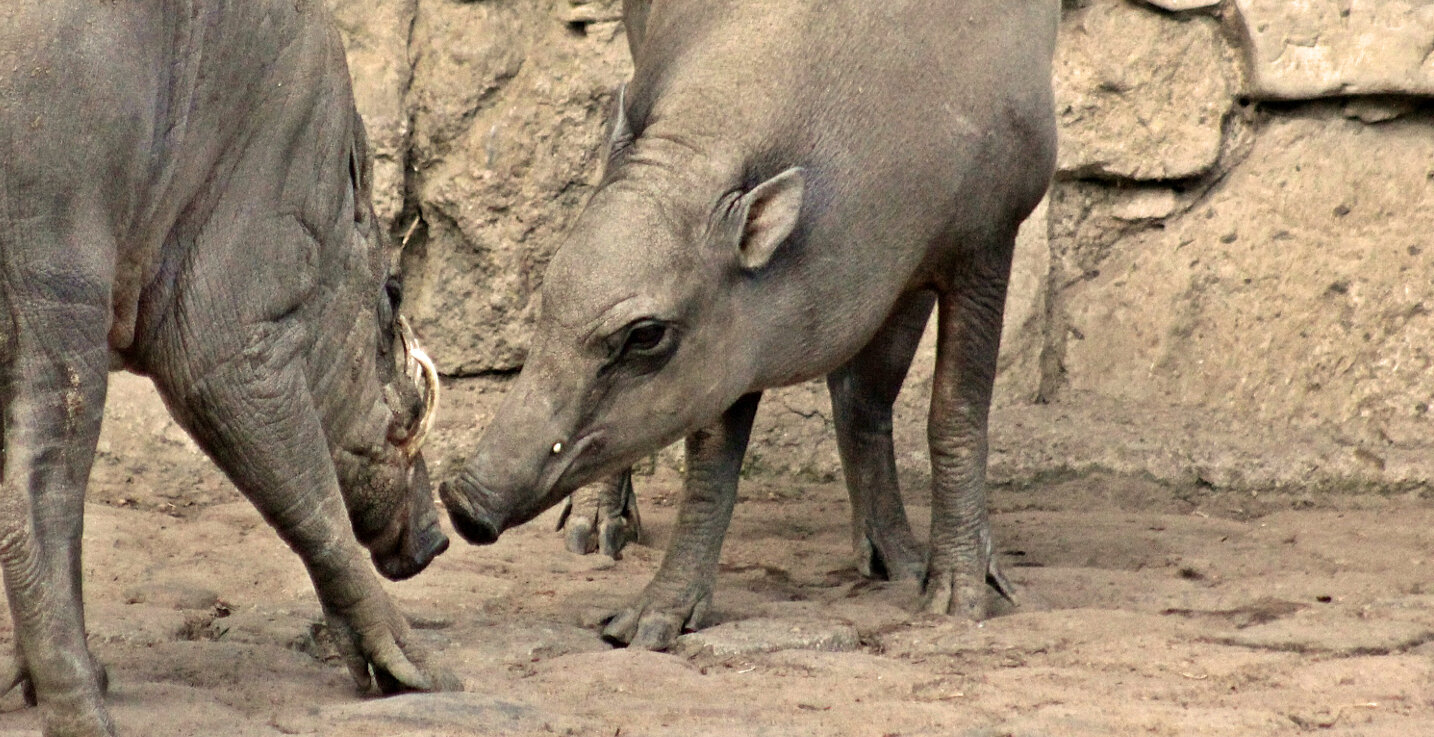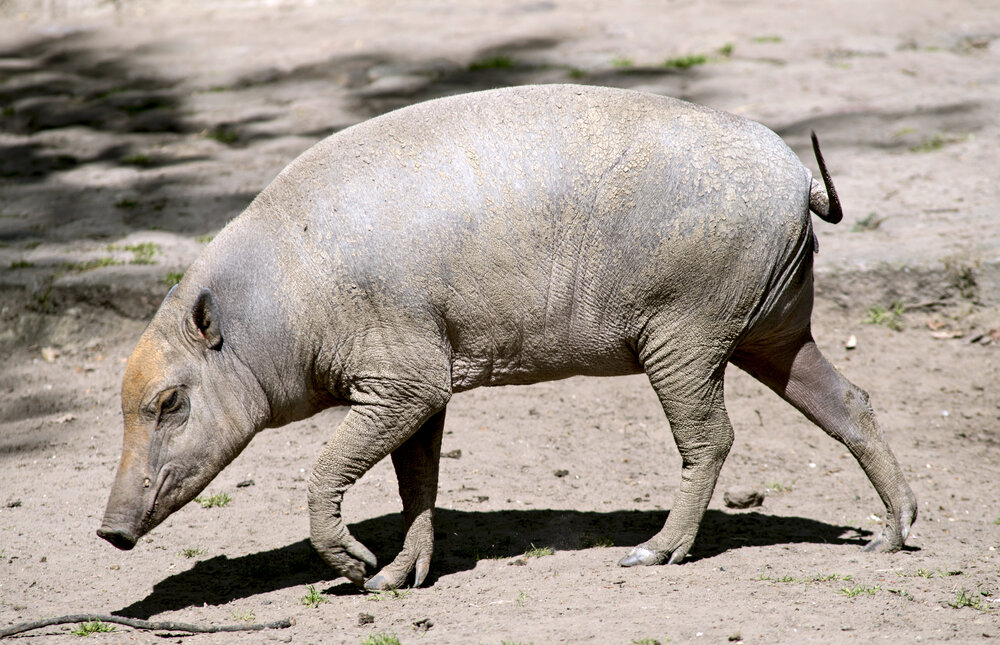
North Sulawesi babirusa
Zoo Berlin has participated in efforts to protect the Sulawesi babirusa in Indonesia.
Project facts
- Project name
Nantu Forest Ecosystem
- Species
North Sulawesi babirusa (Babyrousa celebensis)
- IUCN threatened status
Vulnerable (VU)
- Project location
Nantu Forest, Sulawesi, Indonesia
- Greatest threat
Loss of habitat; poaching
- Response
Protecting habitats by establishing conservation areas; educating the local population about nature and species conservation
Threat Categories of IUCN


Babirusas in Berlin
Babirusas have always been a rarity in Europe. Of the four species, only one can be found in zoos and one is already extinct. For a long time, Zoo Berlin occupied a leading position in the keeping and breeding of babirusas. In 1905, the first-ever baby babirusa in Germany was born here. In 1978, a breeding pair came to Berlin from Antwerp – the first since the Second World War. From 1982 to 1998, Berlin had an excellent breeding record. However, unlike domestic pigs, babirusas only give birth to one or two piglets at a time, so the total number of babirusas in human care did not appreciably increase.
Sulawesi: an unexplored wilderness
The babirusa is one of the oldest living genera of the pig family. In the wild, it is found only on the Indonesian island of Sulawesi and some of the smaller, offshore islands. It has been protected by law since 1931. The 62,000-hectare Nantu Forest is one of the last contiguous areas of rainforest in Sulawesi and one of very few places where the threatened babirusa finds refuge. This ecosystem is home to countless other animals and plants, many of which are poorly documented and understood. Zoo Berlin is supporting research efforts to systematically record newly discovered species, many of which are found nowhere else in the world.
A hotspot for endemic species
More than 60 percent of the mammals and 30 percent of the birds on Sulawesi are only found here, and the island is considered an international biodiversity hotspot. Other threatened mammal species on Sulawesi alongside the babirusa are the endangered anoa (a bovine) and the tiny tarsier (a primate). Experts assume that there are many more as yet undiscovered species living in the Nantu Forest.
The threat of poaching
Babirusas are threatened by the loss of their habitat and by illegal hunting. Their numbers are currently dropping, despite the fact that they benefit from the religious practices of the local population. Most people who live on Sulawesi are Muslims and do not eat meat from pigs. However, in the northern part of the island, where the Nantu Forest is situated, Christianity is the predominant religion. Poaching therefore continues to pose a great threat to the babirusa. In 2013, 62 babirusa carcasses were sold at market in the town of Langowan alone. The other major threat alongside poaching is destruction of habitat. Logging, slash-and-burn forest clearance, and rattan harvesting are ravaging the babirusa’s natural home. But the greatest damage of all is caused by gold prospecting: to extract the gold, prospectors use highly toxic mercury, which then finds its way into the water system. This large-scale contamination has a disastrous impact on all life – plant, animal and human.
Research and education are helping the babirusa
Zoo Berlin lent its support to the Zoological Society for the Conservation of Species and Populations (ZGAP) in a project designed to help preserve the natural habitat of the North Sulawesi babirusa. Launched in 2001, the project aims to protect the drainage basin of the River Paguyaman. More than 15,000 small farmers live downstream of this basin and depend on the river for their water supply. Money donated to the project is used to conduct field research, accommodate the numerous national and international research teams, host information events for schoolchildren and their teachers, and prepare and provide teaching material for local primary schools.
Donations aid diversity
The project is supported by local authorities and cooperates with the Indonesian Ministry of Environment and Forestry as well as two local universities. While the project is running, two conservation stations are staffed around the clock, seven days a week. Rangers patrol daily to prevent illegal gold prospecting, logging, forest clearing, hunting, and rattan harvesting. Thanks to these measures, the babirusa’s chances of survival are currently looking good – assuming that its natural habitat in the Nantu Forest can be protected over the long term. Project managers are planning to introduce a buffer zone around the national park to prevent further destruction of the virgin forest. Researchers are also expected to discover and describe many new species in the coming years, which will increase the significance of the Nantu Forest and make its protection an even higher priority.

